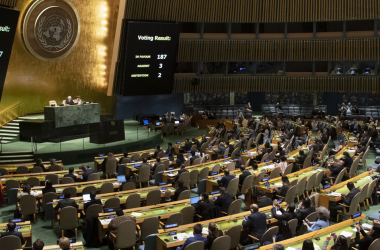This morning I spent some time watching two Syrians having a heated debate in Al-Jazeera’s ‘Ittijah el-Moakes’. Of course the topic was about the declaration (and not the real action) of US to retreat from the battleground in Syria.
(Just in case you are interested in watching the whole thing, here it is: )
The Syrian regime’s representative said that the decision made by US is by and large the result of Syrian army’s long withstanding in the battleground despite relentless attacks from American coalition. I found this to be really amusing and rather delusional. A big power like US would never do a reversal move in Middle East unless it is:
- Upon its own will and interest
- Successful in term of objectives and goals
- Serving the strategy outlined by Israel
The other guest highlighted that Syrians should not be too happy to hear about the news. His reason was simple; US is only one of ten foreign armies involved in the Syrian war — all waiting for their own bounties from the beautiful land of Syria. Of course, among the ten, some were very eager to secure their interest as soon as possible as US made its clearance from the battleground. They are:
- Israel
- Iran
- Russia
- Turkey
All four have different national interest in the ‘post-US’ Syria but one common interest is the expansion of their territory by carving out a fraction of Syria. Turkey of course has the termination of Kurdish nationalistic agenda as their top priority (it affects many domains in Turkish domestic affairs, mainly in politics and security). Iran wants to expand its influence and achieve its dream to be the regional hegemon, opposing Saudi Arabia. Assad has long been serving that purpose anyway. Russia is betting its future as a major power in Middle East (for many reasons – politics, economy, security, etc) through Syrian regime. Finally, the most malicious and yet cautious actor, Israel, simply want the Golan Height (and Bibi earn national popularity for the upcoming election) for its short term win in Syrian war, and for the ground to more fragile and war prone, for its long term win in the Middle East.
As the time of this writing, all the countries mentioned above has already made their own move in regard to Syria:
- “Israeli security official on Wednesday confirmed responsibility for overnight airstrikes in Syria, saying the air force had hit a series of targets involved in Iranian arms transfers to the Hezbollah militant group.” (https://www.apnews.com/7a0c14ede245411fb24a90fbc2fb2939)
- “Turkey’s foreign minister has reiterated that Turkish forces are determined to cross the Euphrates river into Kurdish-held territory in Syria as soon as possible” (https://www.theguardian.com/world/2018/dec/25/turkey-forces-cross-kurdish-held-syria-foreign-minister)
- “Russia’s Defense Ministry said Wednesday that the airstrike in Syria attributed to Israel directly endangered two civilian flights.” (https://www.haaretz.com/middle-east-news/syria/russia-israel-s-syria-strike-directly-endangered-two-civilian-flights-1.6784562)
- “Iran’s Foreign Ministry has said the US military presence in Syria damaged the region, in the government’s first comments on President Donald Trump’s plan to pull US troops from the war-torn country.” (https://www.aljazeera.com/news/2018/12/iran-presence-syria-wrong-start-181222114949131.html)
The key to understand all the interests mentioned above is the underrated ‘balkanization’ plan of Middle East that has been cultivated by Israel since the inception of the first illegal state of Israel in the 60’s. In short, the strategy of breaking the Middle East into many smaller fragmented states will be the main framework used by Israel to politically and militarily secure the larger area surrounding the land it currently occupies, through the use of other major and regional powers. I will write more in this (with the view I hold to regarding to the matter) in a separate post.
In 2019 we might see even more uncertainties on the ground as major stakeholders are making bolder moves. And as I mentioned earlier, what Trump has said about the American exit from Syria has a very high probability of inconsistency (as the man himself). He had even dropped a hint of that in his speech in Iraq when he declared that US troops will not leave their bases in Iraq: “In fact, we could use this as the base if we wanted to do something in Syria”.
As for now, what is sure is that the Syrian war is far from ending, and the Syrian people suffer the most.
Syed Ahmad Israa’ Syed Ibrahim
CEO of IRIS Institute











